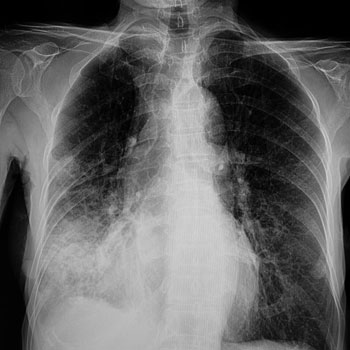Latest updates on ACP's priorities, initiatives
ACP Spotlight offers readers a look at ACP's current top priorities and initiatives, as well as highlights from our e-newsletter, I.M. Matters Weekly from ACP.
ACP recommends evidence-based public health approach to excessive alcohol use
Alcohol use disorder (AUD) is a treatable chronic medical condition that should be addressed through evidence-based public health and health care initiatives, according to a recent ACP policy paper.

"Excessive Alcohol Use and Alcohol Use Disorders: A Policy Brief of the American College of Physicians" was published April 23 in Annals of Internal Medicine and includes six recommendations:
- 1. AUD is a treatable chronic medical condition that should be addressed by expanding evidence-based public health and health care initiatives to prevent and treat abuse and promote recovery.
- 2. There should be training, payment, and delivery system policies to enable physicians and other qualified health care professionals to screen, diagnose, and treat excessive alcohol use and AUD.
- 3. There should be funding for evidence-based public health and health care interventions to prevent and treat excessive alcohol use.
- 4. There should be evidence-based public health strategies to reduce excessive alcohol use and AUD.
- 5. There should be support for interventions to address specific alcohol-related challenges such as impaired driving and motor vehicle harm, disparities in underserved and marginalized populations, excessive drinking among young adults, AUD among people who are unhoused, and alcohol use among pregnant people.
- 6. Regulators, community groups, educators, and the alcohol industry should make a concerted effort to reduce underage alcohol use. Federal, state, and local governments should implement evidence-based policies to curb underage drinking.
"Policymakers, public health organizations, physicians and other health professionals, and private and community organizations all have a substantial role to play in reducing excessive alcohol use and AUD," the position paper concluded. "ACP calls for stakeholders to reduce barriers to accessing treatment of alcohol use disorders and excessive drinking. Efforts must also be made to prevent underage drinking and reduce binge and heavy drinking among young adults and other high-risk populations."
ACP leaders featured in medical media
William E. Fox, MD, MACP, Chair of the Board of Regents, recently addressed the shortage of primary care physicians in an article and a podcast on the KevinMD website, while Isaac O. Opole, MBChB, PhD, MACP, ACP's President, appeared on an episode of Sirius XM's "Doctor Radio."
Dr. Fox's article, "Why We All Need to Care About the Primary Care Physician Shortage," was published March 13 at KevinMD.com. In a companion podcast, Dr. Fox and Kevin Pho, MD, discussed recent statistics, contributing factors (e.g., low reimbursement and administrative burdens), and potential solutions. Dr. Opole recently spoke with Rabia de Latour, MD, host of Doctor Radio on Sirius XM, about Internal Medicine Meeting 2024, the year ahead, and how ACP is working to help doctors and patients.
Apps updated for ACP journals, guidelines
The College has relaunched the Annals of Internal Medicine, Annals of Internal Medicine: Clinical Cases, and ACP Clinical Guidelines mobile apps with new improvements and enhancements.
App updates include easier navigation, light and dark modes, text magnification, and optional notifications. All three apps are available for free on the Apple App Store and Google Play Store. An ACP membership or Annals of Internal Medicine subscription is required to access content that is not designated as free in the Annals of Internal Medicine app.
ICYMI: Highlights from I.M. Matters Weekly
- USPSTF recommends biennial breast cancer screening for women ages 40 to 74 years. The new U.S. Preventive Services Task Force (USPSTF) screening recommendations on mammography represent a change for women ages 40 to 49 years, who in 2016 were advised to make individual decisions about screening. The new recommendation statement was published April 30 by JAMA and summarized in the April 30 I.M. Matters Weekly from ACP.
- Lixisenatide linked with moderate symptom improvement in early Parkinson's. Patients with early Parkinson's disease in France who were treated with a glucagon-like peptide-1 receptor agonist had better outcomes on a motor disability scale at month 12 compared with those on placebo. The trial results were published April 3 by the New England Journal of Medicine and summarized in the April 9 I.M. Matters Weekly from ACP.




